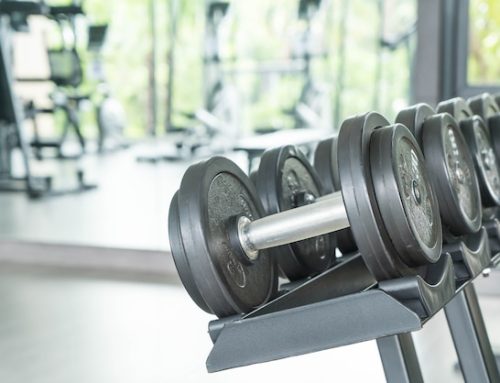The Science Behind Feeling Good After Lifting Weights
If you’ve ever hit the gym, you’ve probably experienced the euphoric feeling that comes after a solid lifting session. But have you ever wondered why lifting weights makes you feel so good? It turns out that there’s a lot of science behind that feeling.
Endorphins: The Feel Good Hormone
One of the key reasons why lifting weights makes you feel good is because it releases endorphins. Endorphins are hormones that are produced by the body in response to pain or stress, and they are often referred to as the “feel good” hormone. When you lift weights, you put your body under stress, and this stimulates the release of endorphins. These endorphins help to reduce feelings of pain and boost your mood, making you feel good after a workout.
Dopamine: The Motivation Hormone
Another hormone that’s released when you lift weights is dopamine. Dopamine is a neurotransmitter that’s sometimes referred to as the “motivation hormone.” It plays a key role in regulating mood, motivation, and pleasure. When you lift weights, you get a rush of dopamine, which helps to boost your mood and motivation. This can make you feel more confident and energized, which can carry over into other areas of your life.
Testosterone: The Muscle-Building Hormone
Lifting weights also stimulates the production of testosterone. Testosterone is a hormone that’s responsible for muscle growth and repair, as well as a host of other functions in the body. When you lift weights, you’re putting stress on your muscles, and this stress triggers the production of testosterone. The more testosterone your body produces, the more muscle you can build. And as you build more muscle, your body starts to look and feel better, which can contribute to your overall sense of well-being.
Improved Sleep
When you lift weights, you’re also likely to get better sleep. Exercise has been shown to improve sleep quality, and this is especially true for strength training. When you lift weights, you’re challenging your body, and this can help to tire you out and make it easier to fall asleep at night. Better sleep can lead to improved mood, more energy, and better overall health.
More Energy
Lifting weights can also help to boost your energy levels. When you lift weights, you’re improving your cardiovascular fitness, which means your body is better able to use oxygen to produce energy. This can lead to increased stamina and endurance, which can help you feel more energized throughout the day. And as you continue to lift weights and improve your fitness, you’ll likely find that you have more energy and motivation to tackle other areas of your life.
Mental Health Benefits
Finally, lifting weights has a number of mental health benefits. Exercise has been shown to reduce symptoms of depression and anxiety, and this is especially true for strength training. When you lift weights, you’re challenging yourself both physically and mentally, and this can lead to increased feelings of confidence and self-esteem. Additionally, the social support that comes from exercising with others can provide a sense of community and belonging, which can also contribute to mental well-being.
Conclusion
Lifting weights has a number of physical and mental health benefits, and it’s no wonder that it can make you feel so good. From endorphins and dopamine to improved sleep and energy levels, lifting weights can help you look and feel your best. So the next time you hit the gym, remember that there’s more to your workout than just building muscle. You’re also boosting your mood, confidence, and overall sense of well-being.






